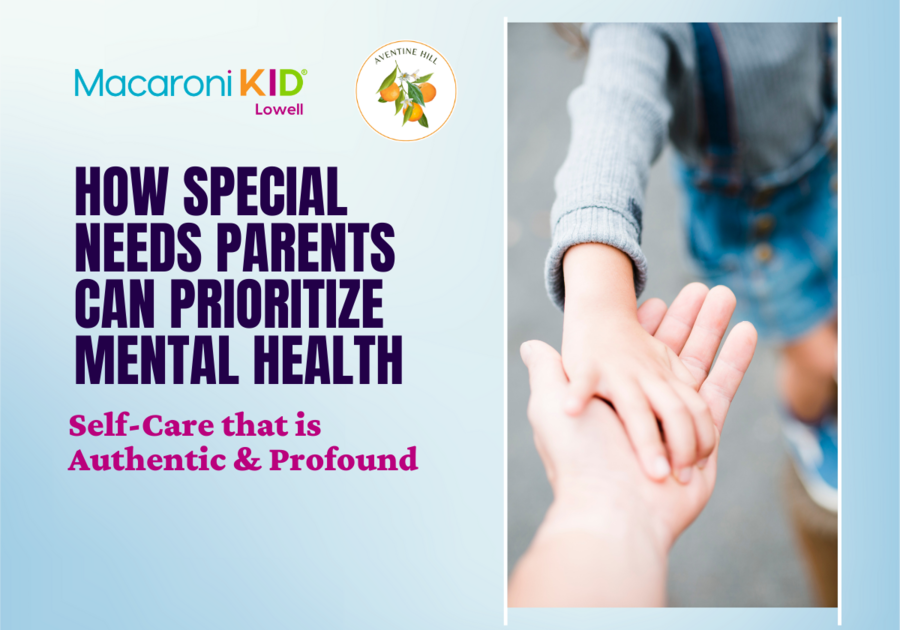Every parent faces challenges, but special needs parents navigate an entirely different level of difficulty. The constant care, worry, therapies, stress, appointments, and advocacy can take a toll on mental and emotional well-being. But here's the truth: you can't pour from an empty cup. Prioritizing self-care isn't selfish – it's essential for being the best parent you can be.
When chronic stress management falls by the wayside for parents of special needs children, the consequences can ripple throughout the family. Exhaustion can set in, leading to decreased patience and difficulty handling everyday situations. Physically, you might experience headaches, sleep problems, or even a weakened immune system, impacting your ability to effectively meet your child's needs. The emotional toll can also be significant, potentially leading to feelings of isolation, resentment, or even depression. Ultimately, neglecting self-care can hinder the entire family's well-being and ability to thrive.
Of course, talking about self-care is easier said than done. For special needs parents, “practice self-care!” can feel like another task heaped on an already overflowing plate. It’s difficult when any effort feels inaccessible given the demands on your time, or when it’s unclear where to find resources. Let's explore some achievable ways to recharge and prioritize your mental well-being, tailored to the very real demands of your daily life.
Taming Stress Day to Day:
- Mindfulness Matters: Techniques like meditation and deep breathing can be powerful tools for managing stress in the moment. There are even apps like Headspace that offer guided meditations and exercises you can do anywhere. The beauty of mindfulness practices like breathwork is that they require minimal setup – no special equipment or dedicated time needed. You can integrate them into your daily routine, even if it's just a few mindful breaths here and there. Deliberately making these a part of every day helps you respond to a particularly stressful moment with more patience and calm and less reactivity.
- Schedule Time for You: Even 15 minutes a day for reading, taking a walk, or enjoying a hobby can make a big difference. It’s important for all parents to retain a sense of identity that has nothing at all to do with how they function for their families, to connect to their core selves and remember who they are. Put it on your calendar every day at a time when you’re not likely to push it aside for something urgent, even if that means waking up 15 minutes earlier.
- Talk it Out: Bottling things up only makes stress worse. Find a trusted friend, therapist, or online support group to share your experiences and get that much-needed emotional release. Some communities have regular in-person meetings where parents can gather to share their highs, lows, and crowdsource solutions. Even venting in a Facebook group niche to your challenges can be helpful, as you put your feelings out into the world and hear from fellow parents who really understand.
Respite: A Parent's Recharge:
Sometimes you just need a break. No one is built to be on and available 24 hours a day, and moving through life as if that’s possible can lead to burnout. Respite care allows parents a temporary break from their caregiving duties. Here are a few options to explore:
- Formal Respite Services: Formal respite services can offer a much-needed break by providing temporary care for your child. Many agencies offer both in-home and facility-based options, staffed by trained professionals who are familiar with the specific needs of children with disabilities. This allows parents valuable time to recharge, run errands, or simply take a mental break, knowing their child is in safe and capable hands.
- Hired Sitters: Websites like Sittercity allow you to screen potential sitters with experience in caring for children with special needs. Some agencies specialize in providing childcare for children with special needs. There are also Facebook groups with providers experienced in caring for children with special needs who will respond to your post looking for help.
- Reciprocal Respite: Connect with other families facing similar situations and agree to swap childcare time, offering mutual support. This can be through families you already know or there are groups that can help match you with another family. Consider families with children whose needs are similar to your child’s, and families with different needs, there are advantages to partnering with both.
- Family and Friends: Delegate tasks or request occasional babysitting help from trusted loved ones. Even if they can’t care for your child, it’s possible they’d be willing and able to help with another task to free up some time for you. An advantage here is that a familiar caregiver needs less orientation and has already developed a rapport with your child.
Finding someone comfortable with your child's special needs can feel like a challenge. To find the right caregiver for your family, you will want to begin your search well in advance, allowing time for training if needed. Being very specific and clearly communicating your child's needs and any necessary accommodations will lead to better outcomes. Moving proactively to find the right person and getting respite on your calendar regularly will help you feel balanced in
your day to day life.
The bottom line is that self-care is an ongoing journey, not a destination. It’s not about ice cream and bubble baths, it’s about making sure your own basic needs are met, and it’s critical that you take care of yourself. Be kind to yourself, and celebrate even small victories. By prioritizing your mental well-being, you'll be better equipped to handle the challenges and joys of raising your amazing child. And if you need assistance finding the right resources for your family, remember that Aventine Hill is available to help.
Laura Granato is Principal at Aventine Hill, LLC, a special needs concierge firm based in Westford, MA. Find out more about how Aventine Hill makes life easier for families with special needs at www.aventinehill.net



